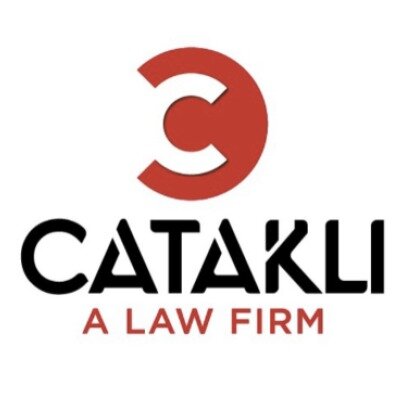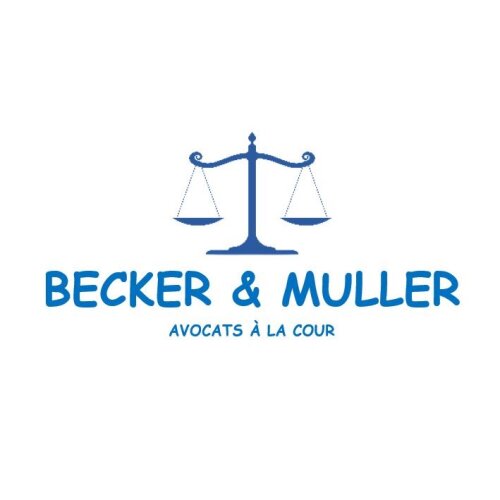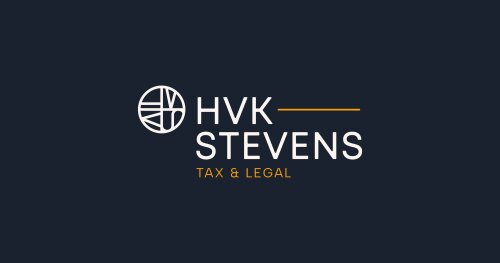Best Nonprofit & Charitable Organizations Lawyers in Luxembourg
Share your needs with us, get contacted by law firms.
Free. Takes 2 min.
Or refine your search by selecting a city:
List of the best lawyers in Luxembourg
About Nonprofit & Charitable Organizations Law in Luxembourg
In Luxembourg, the legal framework for nonprofit and charitable organizations is designed to support activities that contribute to the public good, social welfare, education, culture, environmental protection, and other similar endeavors. These organizations typically exist in the form of non-profit associations (associations sans but lucratif - ASBL) or foundations (fondations). The Grand Duchy of Luxembourg provides a favorable environment for these entities, with laws that facilitate their establishment and operation while ensuring transparency and accountability.
Why You May Need a Lawyer
Engaging legal counsel can be crucial for navigating the various legal requirements and potential challenges when setting up or running a nonprofit organization in Luxembourg. Common situations requiring legal assistance may include:
- Establishing a nonprofit entity, including drafting and registering articles of incorporation.
- Ensuring compliance with local laws and regulations concerning nonprofit operations and governance.
- Navigating tax-exempt status and related financial regulations.
- Managing contracts, intellectual property issues, or disputes involving the organization.
- Understanding legal aspects of fundraising and receiving donations.
- Advising on mergers, collaborations, or dissolutions of nonprofits.
Local Laws Overview
Several key aspects of Luxembourg’s laws are particularly relevant to nonprofit and charitable organizations. To operate legally and effectively, such organizations must be aware of:
- Legal Form: Choosing between an ASBL or a foundation, each with distinct legal requirements.
- Registration: Nonprofits must be registered with the Luxembourg Trade and Companies Register (Registre de Commerce et des Sociétés).
- Governance: Establishing a governing body and adhering to rules for meetings, decision-making, and record-keeping.
- Taxation: Understanding eligibility for tax exemptions and obligations for financial reporting and audit.
- Data Protection: Compliance with GDPR and Luxembourg-specific regulations on handling personal data.
Frequently Asked Questions
What legal forms can nonprofit organizations take in Luxembourg?
Nonprofits can be established as non-profit associations (ASBLs) or foundations. Each form has different legal and operational requirements.
What is the process of registering a nonprofit organization?
Nonprofits must file their constitutional documents with the Luxembourg Trade and Companies Register. Notification is published in the Official Journal, and the organization must adhere to registration requirements.
Are nonprofit organizations eligible for tax-exempt status in Luxembourg?
Yes, nonprofits can apply for tax-exempt status. However, they must meet specific criteria and engage in activities deemed to benefit the public interest.
How are nonprofit organizations governed in Luxembourg?
Governance generally involves a managing body, such as a board of directors, responsible for decision-making. The organization's statutes define specific governance structures and processes.
What are the main compliance requirements for nonprofits?
Nonprofits must adhere to transparency and accounting standards, ensure proper financial management, and comply with data protection laws, among other obligations.
Can a nonprofit organization accept donations from abroad?
Yes, Luxembourg nonprofits can receive international donations, though they must adhere to relevant financial regulations and reporting standards.
What laws govern fundraising activities for nonprofits?
Fundraising is regulated by laws ensuring transparency and ethical practices. Nonprofits must comply with these to avoid legal complications.
What happens if a nonprofit organization dissolves?
Dissolution involves liquidating assets, settling obligations, and distributing remaining assets according to the organization’s statutes and applicable laws.
How does a nonprofit maintain its tax-exempt status?
Ongoing compliance with reporting requirements and adherence to activities aligned with public benefit are essential for maintaining tax-exempt status.
Are there any restrictions on the types of activities a nonprofit can engage in?
Nonprofits should focus on activities that align with their stated purpose and that benefit the public interest, as defined by their charter and Luxembourg law.
Additional Resources
For further guidance, the following resources and organizations can be helpful:
- The Registry of Associations and Foundations under the Ministry of Justice.
- The Luxembourg Chamber of Commerce, which can offer informational support to ASBLs and Foundations.
- The Luxembourg Tax Authority, providing guidance on tax obligations and exemptions.
- Nonprofit organizations such as the European Center for Not-for-Profit Law (ECNL).
Next Steps
If you are seeking legal assistance for a nonprofit or charitable organization in Luxembourg, consider the following steps:
- Contact a lawyer specializing in nonprofit law to discuss your specific needs and circumstances.
- Gather all necessary documentation, including organizational statutes and financial records, for a comprehensive legal consultation.
- Review any existing policies or contracts that may require legal scrutiny or updates.
- Explore joining relevant professional networks or associations for additional support and resources.
Lawzana helps you find the best lawyers and law firms in Luxembourg through a curated and pre-screened list of qualified legal professionals. Our platform offers rankings and detailed profiles of attorneys and law firms, allowing you to compare based on practice areas, including Nonprofit & Charitable Organizations, experience, and client feedback.
Each profile includes a description of the firm's areas of practice, client reviews, team members and partners, year of establishment, spoken languages, office locations, contact information, social media presence, and any published articles or resources. Most firms on our platform speak English and are experienced in both local and international legal matters.
Get a quote from top-rated law firms in Luxembourg — quickly, securely, and without unnecessary hassle.
Disclaimer:
The information provided on this page is for general informational purposes only and does not constitute legal advice. While we strive to ensure the accuracy and relevance of the content, legal information may change over time, and interpretations of the law can vary. You should always consult with a qualified legal professional for advice specific to your situation.
We disclaim all liability for actions taken or not taken based on the content of this page. If you believe any information is incorrect or outdated, please contact us, and we will review and update it where appropriate.
Browse nonprofit & charitable organizations law firms by city in Luxembourg
Refine your search by selecting a city.














